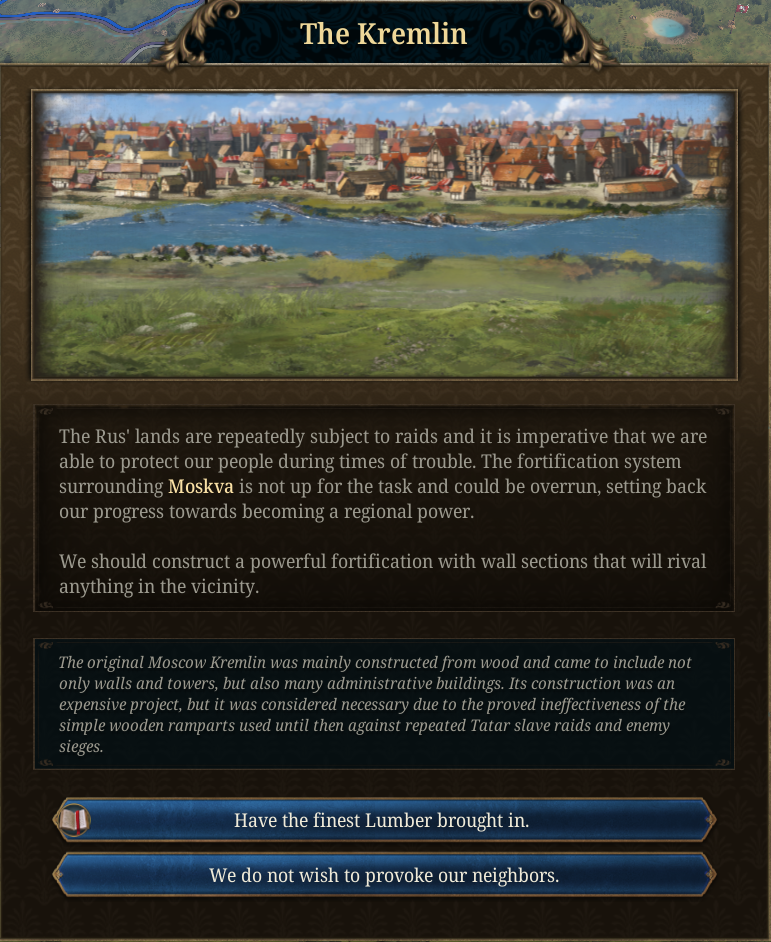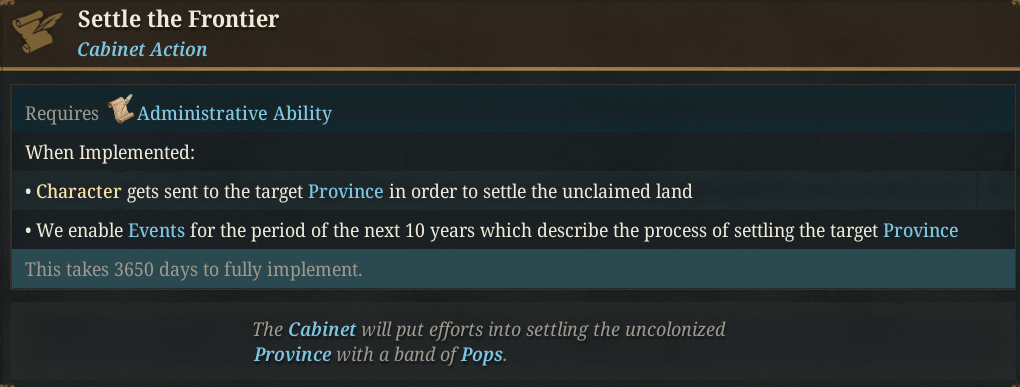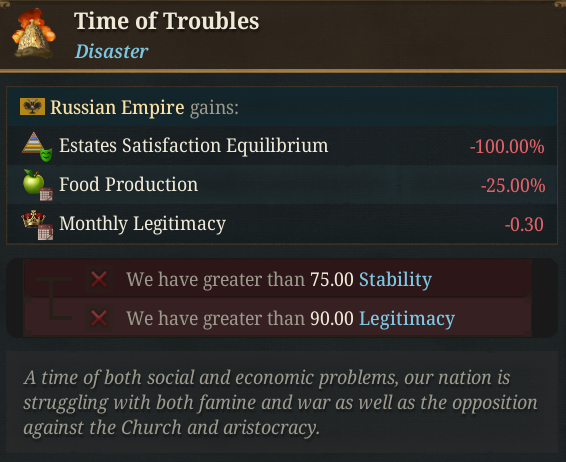Hello, and welcome one more week to Tinto Flavour, the happy Tuesdays & Fridays in which we take a look at the content of Europa Universalis V!
Today we will be taking a look at the content of Muscovy, and its ‘successor state’, Russia, after Grand Prince Ivan III ‘the Great’ proclaimed himself ‘Sovereign of All Russia’. This is a special TF, because it’s the first one in which we show the content for one of the seven ‘Tier 1’ counties, those that we consider the most important in the 1337-1836 period, and thus, that have the most content in the game.
Let’s start taking a look at it, as usual:

As usual, consider all UI, 2D and 3D art WIP.


This is the starting diplomatic situation of Muscovy:

Muscovy starts in a Personal Union with a bunch of principalities, including Novgorod, which is a Republic that elects its rulers among those of other countries.

This is the current starting state of the Tatar Yoke, with Muscovy being entitled as the ‘Grand Prince of Vladimir’ - or, in other words, the ‘tribute collector’ for the Tatars. We won’t talk about this feature today, but in the Tinto Flavour devoted to the Golden Horde.
These are some of the privileges that the Russian countries have available from the start:



Also, this starting Legal Code Policy:

Here you have some of the advances available for Muscovy and Russia through the ages, as usual:




And now let’s move into the narrative content. Muscovy has 109 Dynamic Historical Events available, while there are another 73 unlockable after having formed Russia, which makes for a total of 182 available DHEs - that’s what being a ‘Tier 1’ country means, in regards to content. Many of them will unlock very different types of other content assets, as you’ll see now:

This is an event that may trigger if Novgorod elects another ruler, as happened historically.


If you build the Kremlin, there will be further events related to it.







If Byzantium falls, and some other conditions are met, you might be able to marry a Greek princess, and proclaim your country as the ‘Third Rome’.
If you expand your country, you might be able to form Russia at a certain point:



The Russian Principalities account for approximately 460 locations, so you need to conquer some more from the Golden Horde to get to the 508 required. I forced it through the console to show it to you, but one of our QA testers made a recent run, and he was able to form it around 1500, OOC.
When the Age of Reformation starts, there will be this advance available for the Russian countries:

That unlocks:


It’s also possible for a unique disaster to trigger, the Time of Troubles:





Time of Troubles has many different events happening, on top of the DHEs:
If you overcome it, there’s even more late-game content, of course:





… And much more, but that’s all for today! As today is Friday, this will be the schedule for next week:
Today we will be taking a look at the content of Muscovy, and its ‘successor state’, Russia, after Grand Prince Ivan III ‘the Great’ proclaimed himself ‘Sovereign of All Russia’. This is a special TF, because it’s the first one in which we show the content for one of the seven ‘Tier 1’ counties, those that we consider the most important in the 1337-1836 period, and thus, that have the most content in the game.
Let’s start taking a look at it, as usual:

As usual, consider all UI, 2D and 3D art WIP.


This is the starting diplomatic situation of Muscovy:

Muscovy starts in a Personal Union with a bunch of principalities, including Novgorod, which is a Republic that elects its rulers among those of other countries.

This is the current starting state of the Tatar Yoke, with Muscovy being entitled as the ‘Grand Prince of Vladimir’ - or, in other words, the ‘tribute collector’ for the Tatars. We won’t talk about this feature today, but in the Tinto Flavour devoted to the Golden Horde.
These are some of the privileges that the Russian countries have available from the start:



Also, this starting Legal Code Policy:

Here you have some of the advances available for Muscovy and Russia through the ages, as usual:




And now let’s move into the narrative content. Muscovy has 109 Dynamic Historical Events available, while there are another 73 unlockable after having formed Russia, which makes for a total of 182 available DHEs - that’s what being a ‘Tier 1’ country means, in regards to content. Many of them will unlock very different types of other content assets, as you’ll see now:

This is an event that may trigger if Novgorod elects another ruler, as happened historically.


If you build the Kremlin, there will be further events related to it.







If Byzantium falls, and some other conditions are met, you might be able to marry a Greek princess, and proclaim your country as the ‘Third Rome’.
If you expand your country, you might be able to form Russia at a certain point:



The Russian Principalities account for approximately 460 locations, so you need to conquer some more from the Golden Horde to get to the 508 required. I forced it through the console to show it to you, but one of our QA testers made a recent run, and he was able to form it around 1500, OOC.
When the Age of Reformation starts, there will be this advance available for the Russian countries:

That unlocks:


It’s also possible for a unique disaster to trigger, the Time of Troubles:





Time of Troubles has many different events happening, on top of the DHEs:
If you overcome it, there’s even more late-game content, of course:





… And much more, but that’s all for today! As today is Friday, this will be the schedule for next week:
- Monday -> Tinto Flavour about Venice and Genoa
- Tuesday -> Tinto Flavour about Serbia and Georgia
- Wednesday -> Tinto Talks about the Orthodox and Miaphysite religions
- Thursday -> Third ‘Behind the Scenes’ video!
- Friday -> Tinto Flavour about the Roman Empire, AKA Byzantium


